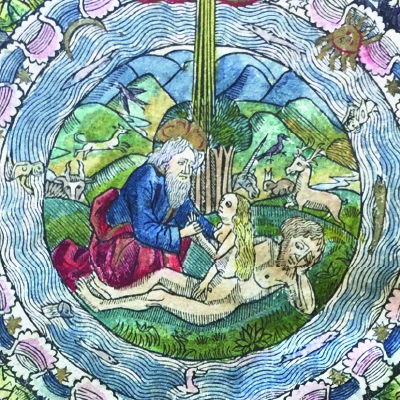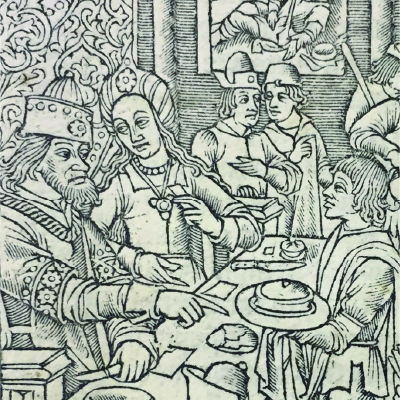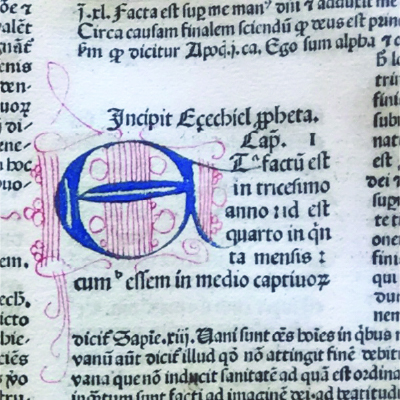Incunables Exhibit
May 2020—"Incunables: Discovering the Origins of the Printed Book" is a new exhibit featuring some of Raynor Memorial Libraries' rarest books.
After Johannes Gutenberg developed his printing press in Germany in the mid-15th century, handwritten manuscripts steadily gave way to printed books across the European continent, transforming the flow of knowledge around the world and fueling the discoveries of the Renaissance. The books published in the earliest decades of printing (1450-1501) are known as incunables, from the Latin word incunabula, which means cradle or swaddling clothes.
A new exhibit from Raynor Memorial Libraries—Incunables: Discovering the Origins of the Printed Book—shines a light on this exceptional period of book publishing through a showcase of incunables from its own rare books collections. The library holds 28 of these extraordinary books, which include a 1473 edition of St. Augustine's City of God published in Germany by the immediate successors to Johannes Gutenberg (using Gutenberg's type) and a Bible printed in 1482.
- Explore the online exhibition now.
- Visit the in-person exhibit when the library reopens later in 2020.



Details from incunables included in the library's exhibit.
Explore Further
Contact Amy Cooper Cary, Head of Special Collections, for questions about the exhibit or the library's rare books collection.
See a list of the incunables in the library's incunables collection.
Discover more about the history of incunables:
- Incunabula: The Art & History of Printing in Western Europe, c. 1450-1500, a Library of Congress digital exhibit
- The Atlas of Early Printing, an interactive map from the University of Iowa Library
- The Fifteenth Century Book: The Scribes, the Printers, the Decorators, by Curt F. Bühler.
- 15cBOOKTRADE, an extensive digital humanities project that explores early book publishing in Europe

